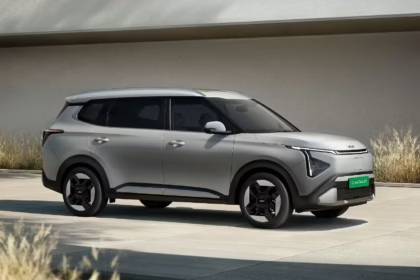The automotive industry in India is on the brink of its evolution, where companies are planning to come up with vehicles that run on cleaner technologies, mainly taking into consideration the hole that is being created by traditional vehicles that are dependent on fossil fuels.
- What is a Hybrid Vehicle?
- What is an Electric Vehicle?
- Comparing Hybrid vs Electric Vehicles
- Charging and Fueling
- Emissions of hybrid vs ev cars
- Driving Range
- Hybrid vs Electric Car Cost
- Fuel Efficiency of Ev vs Hybrid Car
- Hybrid vs Electric Vehicles: Pros and Cons
- The Future of India’s Automotive Industry: hybrid vs electric vehicles?
- Key Considerations for Indian Consumers
- Conclusion
- FAQs
- 1. Are hybrid vs electric vehicles more environmen tally friendly?
- 2. Are hybrids cheaper to maintain than full-electric cars?
- 3. Which type of vehicle offers a longer travelling range?
- 4. How do you manage to maintain electric vehicles?
- 5. Is it possible to charge electric cars in India more easily than finding a charging station for the car?
At the forefront of this movement are two promising alternatives. The automobile types recognized in the auto-ecology framework include hybrid vs electric vehicles.
Each type is progressively being viewed as environmentally friendly, and while new records are being set annually on EV sales, hybrids are again proving to be a feasible, efficient mixture of traditional and electric power.
With each type of vehicle offering unique benefits, it’s natural for consumers and experts alike to wonder, out of them, which one is the future of India’s roads? Hybrid vs Electric Vehicles is a debate that is emblematic of the global shift to sustainability in the country.
In this article, the differences between hybrid vs electric vehicles, their primary benefits and issues, and possible implications for India’s automotive industry are discussed.

What is a Hybrid Vehicle?
A hybrid vehicle has both a gasoline engine and an electrical motor through which the automobile is operated. The integration of the two systems enables the car to use either petrol and battery power or both petrol and battery power at any given time.
For example, the car can run on the electric motor during city traffic or when the car is parked and turn to gasoline engine when the car is on the highway many car manufacturing companies around the world are considering developing hybrid cars.
An important feature about hybrid cars is that one does not need to plug them in to recharge. But they charge the battery in one more way known as the regenerative braking system. When you brake, the energy which is produced is then drawn into the battery.
This makes hybrids convenient for drivers seeking to reduce fuel expenses and emissions while not requiring charging facilities as they suit cities with triggering traffic patterns best.
Key Features and Benefits of Hybrid Vehicles
- Reduced Emissions: Hybrid forms of vehicles have lower emissions than ordinary gasoline-engaging cars by generating electricity during moments of stationariness and low speeds.
- Fuel Efficiency: There are some benefits when driving hybrids that apply to fuel economy; the car can switch to the electric motor in traffic jams, for example.
- Regenerative Braking: This characteristic captures power created when brakes are applied as well as stores it to the battery as electricity.
- Extended Driving Range: Hybrid vehicles employ both gasoline and electric engines, which makes them travel longer distances than normal gasoline and electric vehicles.
Drawbacks of Hybrid Vehicles
Despite their benefits, hybrids have some limitations:
- Higher Upfront Costs: Hybrids are normally more costly than regular ICE automobiles because of the presence of a major and minor powertrain.
- Complex Maintenance: This dual-engine system causes complications and may also add some level of costliness to its usage in the future.
What is an Electric Vehicle?
Electric automobiles are smooth electric automobiles that function using an electrical motor and rechargeable batteries instead of gasoline or diesel motors. EVs have an electric motor that powers the car and have another motor called battery which needs charging through outside charging facilities.
Features and Advantages of Electric Vehicles
- Zero Emissions: EVs are mainly used as zero-emission vehicles because they emit no tailpipe emissions, and this makes them very environmentally friendly.
- Energy Efficiency: EVs are at least four times efficient than the hybrid vs electric car even with assumption of reliance. As stated, moving parts are limited thus there is minimal energy wasted, addition they require little or no maintenance.
- Lower Operating Costs: Across their life cycle, EVs seem to incur less operational costs mainly because they do not use gasoline and involve few maintenance procedures.
- Quiet Operation: Electric motors used in EVs make sure that the feeling of the ride is both comfortable and noiseless.
Drawbacks of Electric Vehicles
While EVs have numerous benefits, they do come with challenges:
- Higher Initial Costs: Yet, battery technology makes EVs costlier than hybrids or conventional automobiles, much as improved fuel efficiency raises the sticker price of a car.
- Limited Range: Compared to hybrids, most electric vehicles have a relatively lower power mileage, which can be quite an issue on long routes.
- Charging Infrastructure: Specifically, in India, the charging network is relatively new which enshrouds the charging stations so as an artefact, the accessibility of the charging stations can be challenging especially to the rural users.
Comparing Hybrid vs Electric Vehicles
A basic distinction that must be made when considering which type of vehicle might be necessary is Hybrid vs Electric Vehicles.
Charging and Fueling
- Hybrids: Charge via regenerative braking with a battery and use Gasoline for more power, which can be fueled at any nearest existing gas station.
- EVs: Make them externally rechargeable, which means that they would be a part of the charging network.
Emissions of hybrid vs ev cars
- Hybrids: Emit fumes that are relatively lower than those realized by ICE vehicles but still emit fumes because of the usage of Gasoline.
- EVs: Have a provision of no emission at all from their tailpipe which makes them one of cleanest forms of transport vehicles on the market.
Driving Range
- Hybrids: In general, they have a higher driving range since they incorporate the advantages of the electric base with Gasoline ranging capabilities.
- EVs: The battery endurance is slightly reduced in terms of the possibilities it can provide per charge, but progress in battery advancements is slowly expanding this number.
Hybrid vs Electric Car Cost
- Hybrids: Generally, hybrids are usually cheaper than ICE vehicles but expensive than full battery EVs, making them a category on their own.
- EVs May even cost a little more than their conventional counterparts initially but end up having advantageous operating costs in terms of fuel consumption and mechanical failure.
Fuel Efficiency of Ev vs Hybrid Car
- Hybrids: High fuel economy as they are always in a position to switch between electric motors and gasoline engines, and great for city use.
- EVs: Provide the best energy utilization patterns since they are independent of any power source other than the batteries.
Hybrid vs Electric Vehicles: Pros and Cons
Let’s see the advantage and disadvantage of Hybrid vs Electric Vehicles:
| Aspect | Hybrid Vehicles | Electric Vehicles |
| Emissions | Reduced | Zero |
| Fueling | Gasoline + Battery | Battery Only |
| Maintenance Costs | Moderate | Low |
| Driving Range | Long | Moderate |
| Initial Costs | Moderate | High |
| Eco-Friendliness | Moderate | High |
| Infrastructure | Available | Growing |
The Future of India’s Automotive Industry: hybrid vs electric vehicles?
Hybrid vs electric vehicles also sign a development progress toward a better and more green automotive industry. The future of automotive industry in India will thus comprise of both hybrid vs electric vehicles both of which have their distinct role to play in fulfilling the promise of environment saving future of the nation.
Bountiful schemes like FAME II (Faster Adoption and Manufacturing of hybrid vs electric vehicles plan to give subsidies to consumers as well as the manufacturers of EVs.
City Driving and Short Commutes
Electric Vehicles: Ideal for use in densely populated cities where distance covered is marginal and charging depot available frequently.
Long-Distance Travel
Hybrid Vehicles: For those who sometimes have to travel longer distances, hybrids are comfortable since they tap from the benefits of Hybrid vs Electric Vehicles.
Key Considerations for Indian Consumers
The elements Indian consumers need to consider include the upfront cost of a vehicle, the charging network availability, mileage, and pollution. Owners of metropolitan cars may find EVs valuable while those from rural or half-urban areas will appreciate hybrid cars vs electric cars.
Conclusion
India’s progress towards creating a green automotive sector means comparing the advantages and disadvantages of Hybrid Vehicles vs Electric Vehicles. Several months into the 2022 market, a myriad of automotive categories has cropped up, leading these Hybrid vs Electric Vehicles areas to consider electric cars to be the most sustainable autos.
Behind these comes hybrid cars on account of the flexibility of their nature. It’s possible that the future will bring improvements that combine the best of ev vs hybrid solutions – cheap, efficient, and environmentally friendly. To learn more about the new upcoming electric vehicle in India, go to here.
For more information regarding hybrid vs electric vehicles visit here.
FAQs
1. Are hybrid vs electric vehicles more environmen tally friendly?
In general electric vehicles are more ecologic because of no emission in contrast to some hybrid vehicles because of gasoline consumption.
2. Are hybrids cheaper to maintain than full-electric cars?
Indeed, hybrids could be easy to maintain, unlike all-electric vehicles, because they are not fully dependent on the electric parts, and gasoline power is available if need be.
3. Which type of vehicle offers a longer travelling range?
Hybrids normally have a longer range of operation than their electric-only counterparts, though they do utilize both Gasoline and electricity.
4. How do you manage to maintain electric vehicles?
The use of EVs is that they demand less or no maintenance than hybrids or gasoline cars because of their limited parts and lack of engine oil.
5. Is it possible to charge electric cars in India more easily than finding a charging station for the car?
The charging infrastructure is gradually developing; however, at the time of this writing, it remains more available in metropolitan zones.





